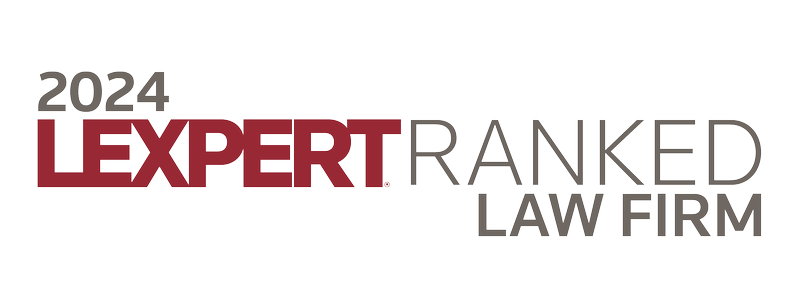Strikes and lockouts: a bill to give greater consideration to the needs of the population
On February 19, 2025, the government introduced Bill 89, a piece of legislation that is essentially designed to regulate strikes and lockouts to limit their impact on the population. The Bill proposes major changes to the QuebecLabour Code,1 including granting special powers to the Minister of Labour to force binding arbitration on the parties in order to break a bargaining deadlock. It also introduces a new category of “services ensuring the well-being of the population,” i.e., services that may be maintained in the event of a labour dispute. Special powers granted to the Minister The Bill would allow the Minister to force the partiesinto binding interest arbitration provided that conciliation or mediation has failed and the Minister considers that the labour dispute is causing or threatens to cause serious or irreparable harm to the population. Such powers would not apply to labour disputes in the public and parapublic sectors.2 The strike or lockout would end at the time indicated in the notice sent to the parties. If the parties cannot agree on the choice of arbitrator, the Minister will appoint an arbitrator ex officio.3 The parties would still have the option to settle the dispute outside of arbitration, and the arbitrator would have no power to amend the resulting settlement agreement.4 Failing agreement, the arbitrator would break the deadlock by ruling on the employees’ working conditions. The new powers are similar to those of the Federal Minister of Labour, who can refer disputes to the Canada Industrial Relations Board under the Canada Labour Code.5 The Board then investigates the matter and decides on the necessary steps to resolve the issue. This mechanism has been used to order employees back to work in major disputes, such as the Canada Post mail strike in December 2024.Services to be maintained to ensure the well-being of the population The Labour Code currently provides that essential services must remain available during labour disputes to safeguard the health and safety of the public.6 However, it does not cover certain cases where a strike could cause major social or economic disruption. From 1982 to 2019, it was solely up to the government, on recommendation of the Minister, to pass orders in council directing the parties to maintain essential services. This gave the executive branch discretionary power to assess whether an anticipated strike posed a significant danger.7 The main goal was to protect the public against social and economic turmoil.8 In 2019, that power was taken away from the government and given to the Administrative Labour Tribunal (“ALT”). The ALT now decides whether certain services must remain available during a strike and, if so, assesses whether the essential service levels are adequate. However, in some cases, the ALT has applied a strict interpretation of the criteria for determining which essential services must be maintained. This is what happened, for example, with public transit in the Capitale-Nationale region, where bus service was not deemed essential during a drivers’ strike.9 Bill 89 parallels that jurisprudential trend by introducing a new category of protected services - those “ensuring the well-being of the population ”. These are defined as the services “minimally required to prevent the population’s social, economic or environmental security from being disproportionately affected, in particular that of persons in vulnerable situations”.10 This provision would apply to all strikes or lockouts, except those occurring in a government department or agency where employees are appointed under the Public Service Act11 or in an institution within the meaning of the Act respecting the process of negotiation of the collective agreements in the public and parapublic sectors.12 This notion is similar to the concept of “minimum services” recognized in international labour law, particularly by the International Labour Organization’s Committee on Freedom of Association. The Committee considers that minimum levels may be set for certain services that are not essential “in the strict sense of the term” when a strike has the potential to paralyze a critical sector or trigger a severe national crisis that would jeopardize the well-being of the population, or when such measures are necessary to ensure that the basic needs of the population are met.13 > It is certainly still too early to determine which sectors would fall under the new category in Quebec and be subject to the new interpretation criteria. However, while each case is different, sectors where international law provides for minimum service levels could qualify, as they have a direct impact on daily life. Such services include education during extended strikes, public transit, basic banking, energy infrastructure management, passenger and freight services, and solid waste collection.14 The Bill would allow the government to issue an order in council designating parties for whom the ALT can determine whether services must be maintained in the event of a dispute. It would then be up to the ALT to order the parties to maintain those services, but the parties themselves would first need to attempt negotiations around the services they deem necessary. If no agreement is reached, the ALT will make the final decision. In all cases, an assessment will be conducted to determine whether the level of service is adequate. Moreover, the ALT would be granted various investigative15 and remedial powers16 in the matter. The Bill also introduces various other provisions17 and prohibits changes to the working conditions of employees providing such services, unless the parties have reached an agreement.18 Furthermore, the Bill includes penal provisions and states that employers declaring a lockout in a public service organization are required to inform the other party and the Minister of Labour in writing at least seven clear working days19 in advance. Conclusion Bill 89 is still at the introduction stage, and its approval will depend on the upcoming parliamentary process. The Bill may still be amended before it becomes law. That said, the Bill has sparked strong reactions from trade unions, with some representatives saying they plan to challenge the new measures in court if they are adopted and enforced.20 We will be closely monitoring the Bill’s progress and potential impact on the legal framework governing labour relations in Quebec. CQLR, c. C-27. Bill 89, s. 5 amending the Labour Code by adding section 111.32.2. However, this would not apply to labour relations in the public and parapublic sectors. Bill 89, s. 5 amending the Labour Code by adding s. 111.32.3. Bill 89, s. 5 amending the Labour Code by adding s. 111.32.4. R.S.C. 1985, c. L-2. The existing provisions mainly apply to public services and comparable services, as well as to the public and parapublic sectors. Fernand Morin, Rapports collectifs de travail, 2nd ed., Montréal, Éditions Thémis, 1991, p. 697: [TRANSLATION] “This provision applies only to businesses designated by an order in council and only while collective bargaining is underway (s. 111.0.17 of the Labour Code).According to this section: (i) It is the Minister’s responsibility to assess whether an anticipated work stoppage poses a danger and to take initiative in bringing the matter before the government.” National Assembly of Québec, Commission permanente du Travail, de la Main-d’œuvre et de la Sécurité du revenu (standing committee on labour, workforce and income security), 3rd Session, 32nd Legislature, June 10, 1982, “Étude du projet de loi no 72 - Loi modifiant le Code du travail, le Code de procédure civile et d’autres dispositions législatives” (consideration of Bill 72 – An Act to amend the Labour Code, the Code of Civil Procedure and other legislation), p. B-6440: [TRANSLATION] “For example, I was listening to the MNA for Sainte-Anne—I know other people share those same concerns—who was saying that we should introduce the concept of—this isn’t exactly how he put it, but I was going to say—economic or social turmoil.The idea is embedded in the legal framework governing public health and safety, but falls under the jurisdiction of the executive branch.It’s a key element.” Réseau de transport de la Capitale et Syndicat des employés du transport public du Québec Métropolitain inc., 2023 QCTAT 2525. Bill 89, s. 4 amending the Labour Code by adding s. 111.23.3. CQLR, c. F-3.1.1. CQLR, c. R-8.2. International Labour Office, Freedom of association – Compilation of decisions of the Committee on Freedom of Association, 6th ed., Geneva, 2018, at paras. 830 to 866. The Supreme Court has recognized the relevance of the comparison: Saskatchewan Federation of Labour c. Saskatchewan, [2015] 1 SCR 245, at para. 69. Jean Berner, Les services essentiels au Québec et la Charte canadienne des droits et libertés, Québec, Presse de l’Université Laval, 2018, p. 35. Bill 89, s. 4 amending the Labour Code by adding s. 111.22.13. Bill 89, s. 4 amending the Labour Code by adding s. 111.22.15. The powers in question are those provided for in sections 111.17 to 111.22.1 of the Labour Code. Bill 89, s. 4. Bill 89, s. 4 amending the Labour Code by adding s. 111.22.12. Bill 89, s. 1 amending s. 111.0.23 of the Labour Code. Radio-Canada, Québec solidaire soupçonne la CAQ de vouloir se venger du secteur public, February 19, 2025, https://ici.radio-canada.ca/nouvelle/2142088/greves-limites-projet-loi-quebec, accessed February 21, 2025






